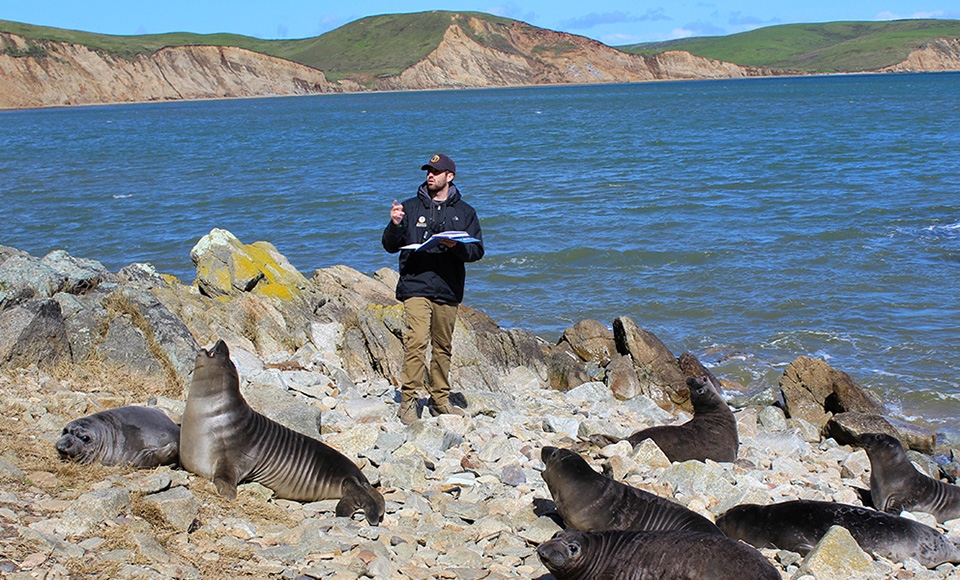Breadcrumbs
- News
- News Archive
- Students Present Elephant Seal Research

Students working on Dominican’s ongoing elephant seal study presented their latest research findings at the Bay Model Visitor Center in Sausalito last February 25.
Professor Doreen Gurrola and students Noelle Mauricio ’20, Logan Siemers ’20, and Rhianon Vertin-Hawkins ’21 presented the natural history of the Northern elephant seal, along with the latest results from an ongoing survey focused on the animal’s migration patterns along the Point Reyes National Seashore (PRNS). Northern elephant seals, once a highly endangered species along our coast, are now found in many rookeries from Northern California to Baja California, Mexico. The colony at PRNS has slowly grown since they recolonized this area in the 1980's.
Led by faculty mentor and marine science educator Doreen Gurrola, Dominican students began surveying the animals in 2017 at several PRNS breeding grounds.
Each winter and spring, a different team of students has studied site fidelity by documenting the location of tagged adults and pups, and then comparing their findings to data collected in previous years. Their work contributes to ongoing studies conducted by the National Park Service.
The students prepare for their fieldwork in Gurrola’s Research Methodology course, learning how to research literature, compile and analyze data, and write-up findings. The weekly visits to PRNS begin in January, not long after the beginning of breeding season. The students collect data while quietly standing only feet away from adults and newly-born pups. By February, landing areas that in previous years had held 20-30 seals were covered by more than 100 moms and pups.
In past years, students have presented findings at regional and national research conferences. Many have used the work as the basis for their senior thesis. The research has prepared former students for work after Dominican.
Luz Torres ’19, who was involved with the first research project, now is a research associate at the University of California, San Francisco.
“What has been most impactful for the students has been going there and having this real-life experience,” says Gurrola. “In the lab, you can replicate something and try it again and again. In the field, it is what it is. You must learn to overcome challenges, be flexible, and think on your feet – all great life skills.”
The event is sponsored by the San Francisco chapter of the American Cetacean Society, a nonprofit organization dedicated to the protection of the world's whales, dolphins, and porpoises (cetaceans) through public education programs, scientific research, and conservation actions.